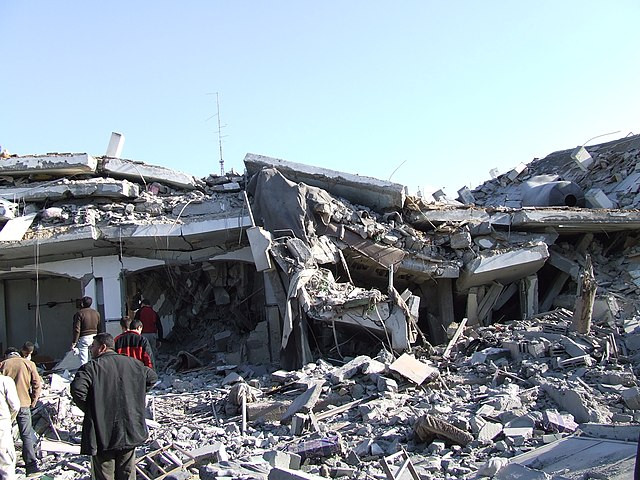An Israeli airstrike on the Nuseirat refugee camp in central Gaza killed more than 30 Palestinians and injured 50 others on Thursday, marking one of the deadliest attacks in recent weeks. The strike targeted a post office that had been sheltering displaced families, as well as nearby homes, according to local medics.
Witnesses described scenes of devastation. Abu Ayman al-Shaer, a resident of Nuseirat, recounted the chaos following the late-night attack. "An entire block was removed tonight," he told Reuters. "There were cries for help from under the rubble, people begging us for help, and we couldn't do anything for them. More than 12 hours under the rubble, and we don't know if they're alive or martyred."
The Israeli military said the strike targeted a senior leader of the Islamic Jihad militant group, accusing them of using civilians as human shields. However, local medics reported that the casualties were overwhelmingly civilians, including families seeking shelter.
The airstrike came as U.S. National Security Advisor Jake Sullivan, visiting Tel Aviv, expressed cautious optimism about the potential for a ceasefire between Israel and Hamas. "It might not happen, but I believe it can happen with political will on both sides," Sullivan said during a press conference. Despite his comments, Israeli bombardments in Gaza have continued unabated, and ceasefire negotiations have yet to yield tangible results.
Earlier Thursday, two additional airstrikes in Rafah, southern Gaza, killed 13 Palestinians guarding humanitarian aid trucks. Israel claimed the individuals were Hamas militants attempting to hijack the aid, but local officials disputed this, insisting the victims were tasked with protecting the shipments amid increasing reports of armed gang interference.
The ongoing conflict, which began on October 7 when Hamas launched a surprise attack on southern Israel, has resulted in catastrophic casualties on both sides. The Gaza Health Ministry reports that more than 44,875 Palestinians have been killed since the conflict began. The war has displaced nearly 2.3 million people, approximately 90% of Gaza's population, creating an unprecedented humanitarian crisis.
Residents of Nuseirat expressed despair over the relentless bombings and stalled ceasefire efforts. "Every time they talk about a ceasefire and every time people hope, a new massacre happens," Alaa al-Bayoumi told Reuters. "One no longer hopes when they say there's a ceasefire."
The U.S., alongside Egypt, Qatar, and other regional mediators, has been working to broker a truce, but these efforts have repeatedly faltered. Hamas has reportedly shown some flexibility in recent discussions, according to U.S. officials, but no agreements have been finalized. Meanwhile, Israel has signaled its intention to continue its military campaign until it achieves its stated objective of dismantling Hamas.
Humanitarian conditions in Gaza continue to deteriorate. Aid groups report that the delivery of food, water, and medical supplies has been severely limited, exacerbating the crisis for civilians. The United Nations has described the situation as "dire," with nearly the entire population displaced and essential infrastructure in ruins.
Adding to the challenges, Hamas has formed a task force to address armed gangs targeting aid shipments, reportedly killing dozens of gang members in recent months. Since the war began, Israeli strikes have also killed an estimated 700 individuals tasked with protecting aid convoys, according to local authorities.




